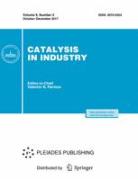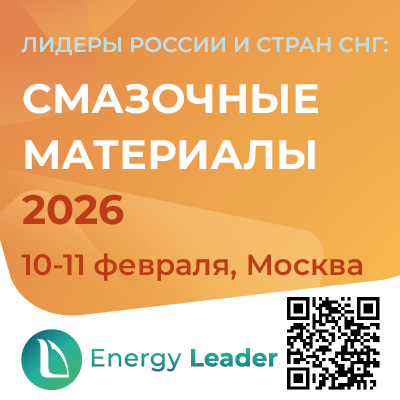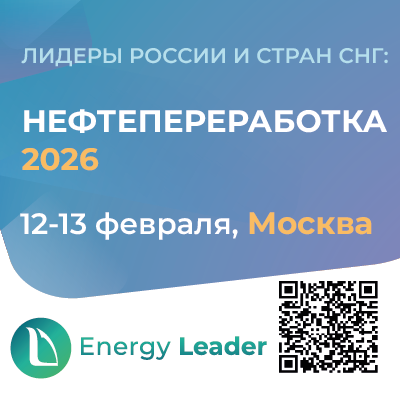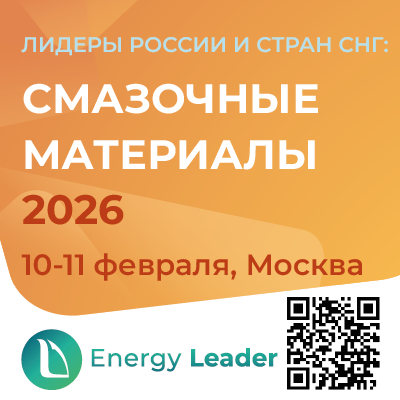Peculiarities of the formation of catalysts, based on γ-Al2O3 modified with Ca2+ and Ni2+ ions, highly active and resistant to carbonization in dry reforming of methane into syngas reaction: relationship between physical-chemical and catalytic properties
https://doi.org/10.18412/1816-0387-2024-6-48-59
Abstract
NixCa1-xAl2O4 samples, where x = 0.1-0.5, were obtained by co-precipitation followed by drying on air at room temperature. After calcination in air at 700 °C, an oxide compound with a defective structure g-Al2O3, in which Ni2+ and Ca2+ ions are stabilized, as well as highly dispersed fragments of NiAl2O4 and NiO was formed. After pretreatment stage (reducing in H2-containing mixture) and work in the reaction medium, nickel is partially reduced to the metallic state and leaves the structure of the compound, forming on the surface highly dispersed Ni0 particles with a size of 3–15 nm. Calcium is stabilized in the structure of g-Al2O3 and on its surface. The introduction by Ca2+ leads to a significant increase in the concentration of not very stable surface and bulk carbonates and bicarbonates, which promotes the oxidation of C-containing intermediate compounds formed on Ni0 centers. In addition, the modification of Ca2+ leads to decrease the concentration of strong acid sites on the surface, the formation of a weaker CO2 bond under reaction conditions, and the fool disappearance of signals from CO complexes with strong LAC, which significantly reduces the amount of carbon, which is formed at the stage of deposition on the surface. The resulting catalysts are characterized by high activity and stable work for a long time in the dry reforming methane reaction.
About the Authors
A. A. ShutilovRussian Federation
M. N. Simonov
Russian Federation
V. E. Fedorova
Russian Federation
A. S. Marchuk
Russian Federation
I. G. Danilova
Russian Federation
G. A. Zenkovets
Russian Federation
References
1. Global Warming of 1.5 °C // Intergovernmental Panel on Climate Change. URL: https://www.ipcc.ch/sr15/ (дата обращения: 16.09.2022).
2. AMAP. Arctic Climate Change Update 2021: Key Trends and Impacts. Summary for Policy-makers //Arctic Monitoring and Assessment Programme, 2021. P.16.URL: https://www.amap.no/documents/download/6759/inline (дата обращения: 16.10.2021).
3. Александрова В. Д. // Международный журнал гуманитарных и естественных наук. 2019. № 5–1. 4. URL: https://cyberleninka.ru/article/n/sovremennaya- kontseptsiya-tsirkulyarnoy-ekonomiki.
4. Alipour Z., Rezaei V., Meshkani F. // Chemical Engineering Jornal // 2023. 452. 139416. https://doi.org/10.1016/j.cej.2022.139416
5. Yentekakis I., Panagiotopoulou P., Artemakis G. // Appl. Catal. B: Environmental. 2021. 296. 120210. https://doi.org/10.1016/j.apcatb.2021.120210
6. Song Y., Ozdemir E., Ramesh S., Adidhev A., Haral A., Albuani M., Fadhel B.A., Jamal A., Moon D., Chois H., Yavuz C.T. // Scince 2020. 367. P.777-781. DOI: 10.1126/science.aav2412
7. Yentekakis I.V., Goula G, Hatzisymeon M, Betsi-Argyropoulou I, Botzolaki G., Kousi K, Kondarides D.I., Taylor M.J., Parlett C.M.A, Osatiashtiani A, Kyriakou G, Holgado G.P., Lambert R.M. // Appl. Catal. B: Environ. 2019. V. 243. P. 490-501. https://doi.org/10.1016/j.apcatb.2018.10.048
8. Zhang G., Liu J., Xu Y., Sun Y.// Int. J. Hydrogen Energy. 2018. V. 43. P. 15030 – 15054. https://doi.org/10.1016/j.ijhydene.2018.06.091
9. Abdulrasheed A, Jalil A.A., Gambo Y, Ibrahim M, Hambali H.U., Shahul Hamid M.Y. // Renewable Sustainable Energy Rev. 2019. V. 108. P. 175 – 193, https://doi.org/10.1016/j.rser.2019.03.054
10. Salaev M.A., Liotta L.F., Vodyankina O.V. // Int. J. Hydrogen Energy. 2022. V. 47. P. 4489 – 4535, https://doi.org/10.1016/j.ijhydene.2021.11.086
11. Vasiliades M.A., Djinovi P., Davlyatova L.F., Pintar A., Efstathiou A.M. // Catal. Today. 2018. V. 299. P. 201 - 211. https://doi.org/10.1016/j.cattod.2017.03.057
12. Wu Z., Yang B., Miao S., Liy W., Xie J., Lee S., Pellin M.J., Miao D., Su D., Ma D. // ACS Catal. 2019. V. 9. P. 2693 - 2700. https://doi.org/10.1021/acscatal.8b02821
13. Pizzolitto C., Pupulin E.,Menegazzo F., Ghedini E., Di Michele A., Mattarelli M., Cruciani G., Signoretto M., // Int. J. Hydrogen Energy. 2019, V. 44. P.28065. 10.1016/j.ijhydene.2019.09.050
14. Provedier H., Petit C., Estournes C., Libs S., Kiennemann A. // Appl. Catal. A. 1999. V. 180. P. 163173. https://doi.org/10.1016/S0926-860X(98)00343-3
15. Charisiou N.D., Baklavaridis A., Papadakis V.G., Goula M.A. // Waste Biomass Valor. 2016. V. 7. P. 725736. https://doi.org/10.1007/s12649-016-9627-9
16. Choudhary V.R., Uphade B.S., Mamman A.S. // Catalysis Letters. 1995. V. 32 P. 387390. https://doi.org/10.1007/BF00813233
17. Koo K.Y., Roh H.S., Seo Y.T., Yoon W.L., Park S.B. // Appl. Catal. A. 2008. V. 340. P. 183190. https://doi.org/10.1016/j.apcata.2008.02.009
18. Toshihiko O., Toshiaki M. // J. Catal. 2001. V. 204. P. 8997. https://doi.org/10.1006/jcat.2001.3382
19. Zhang Z.L., Verykios X.E. // Cat. Today. 1994. V. 21. P. 589595. https://doi.org/10.1016/0920-5861(94)80183-5
20. Horiuchi T., Sakuma K., Fukui T., Kubo Y., Osaki T., Mori T. Applied Catalysis A: General. 1996. V. 144. P. 111120. https://doi.org/10.1016/0926-860X(96)00100-7
21. Ismagilov I.Z., Matus E.V., Kuznetsov V.V., Yashnik S.A., Prosvirin I.P., Kerzhentsev M.A., Ismagilov Z.R., Mota N., Navarro R.M., Fierro J.L.G. // Appl. Catal. A. 2014. V. 481. P. 104 – 115. https://doi.org/10.1016/j.apcata.2014.04.042.
22. Deng J., Cai M., Sun W., Liao X., Chu W., Zhao X.S. //ChemSusChem. 2013. V. 6. P. 2061 - 2065. https://doi.org/10.1002/cssc.201300452
23. Матус Е.В., Шляхтина A.C., Сухова О.Б., Исмагилов И.З., Ушаков В.А., Яшник С.А., Никитин А.П., Bharali P., Керженцев М.А., Исмагилов З.Р. // Кинетика и катализ 2019.V. 60. С.245255. https://doi.org/10.1134/S0453881119020072 (Для анг. версии Matus E.V., Shlyakhtina A.S., Sukhova O.B., Ismagilov I.Z., V. A. Ushakov V.A., S. A. Yashnik S. A., Nikitin A. P., Bharali P, Kerzhentsev M.A., Ismagilov Z.R. Kinetika i Kataliz, 2019, Vol. 60, No. 2, P. 245–255. https://doi.org/10.1134/S002315841902006X)
24. Tan J., Lee D., Ahn J., Kim B., Kim J., Moon J. // J. Mater. Chem. A. 2018. V. 6. P. 18133 – 18142, https://doi.org/10.1039/C8TA05978K
25. Misture S.T., McDevitt K.M., Glass K.C., Edwards D.D.,Howe J.Y., Rector K.D., Hec H., Vogel S.C. // Catal. Sci. Technol. 2015. V. 5. P. 4565 - 4574. https://doi.org/10.1039/C5CY00800J
26. Li D., Koike M., Chen J., Nakagawa Y., Tomishige K. // Int. J. Hydrogen Energy. 2014. V. 39. P. 10959 – 10970, https://doi.org/10.1016/j.ijhydene.2014.05.062
27. Bruker AXS. TOPAS V4.2: General Profile and Structure Analysis Software for Powder Diffraction Data—User’s Manual; Bruker AXS: Karlsruhe, Germany, 2008; Available online: http://algol.fis.uc.pt/jap/TOPAS%204-2%20Users%20Manual.pdf (accessed on 8 May 2020)
28. Database: Inorganic Crystal Structure Database, ICSD. In Release 2008. Fashinformationszentrum Karsruhe D #8211 1754 Eggenstein #8211 Leopoldshafen, Germany, 2008.
29. Belskaya O.B., Danilova I.G., Kazakov M.O., Mironenko R.M., Lavrenov A.V., Likholobov V.A., in Infrared Spectrosc. - Mater. Sci. Eng. Technol., Ed Theophanides T., InTechOpen. 2012. P. 149–178. https://doi.org/10.5772/36275.
30. Busca G. // Adv. Catal. 2014. V. 57. P. 319–404. https://doi.org/10.1016/B978-0-12-800127-1.00003-5.
31. Desai P.G., Xu Z., Lewis P.G. // J. Am. Caram. Soc. 1995. V. 78 (11). P. 2881-2888. https://doi.org/10.1111/j.1151-2916.1995.tb09059.x
32. Garbarino G., Chitsazan S., Phung T.K., Riani P., Busca G. Preparation of supported catalysts: a study of the effect of small amounts of silica on Ni/Al2O3 catalysts // Appl. Catal. A, General. http://dx.doi.org/10.1016/j.apcata.2015.07.017
33. Sengupta S., Ray K., Deo G. // Int. J. Hydrog. Energy. 2014. V. 39. P. 11462–11472. http://dx.doi.org/ 10.1016/j.ijhydene.2014.05.058
34. Xu J., Zhou W., Li Z., Wang J., Ma J. // Int. J. Hydrog. Energy. 2009. V. 34. P. 66466654. https://doi.org/10.1016/j.ijhydene.2009.06.038.
Review
For citations:
Shutilov A.A., Simonov M.N., Fedorova V.E., Marchuk A.S., Danilova I.G., Zenkovets G.A. Peculiarities of the formation of catalysts, based on γ-Al2O3 modified with Ca2+ and Ni2+ ions, highly active and resistant to carbonization in dry reforming of methane into syngas reaction: relationship between physical-chemical and catalytic properties. Kataliz v promyshlennosti. 2024;24(6):48-59. (In Russ.) https://doi.org/10.18412/1816-0387-2024-6-48-59



























